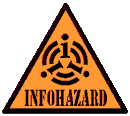- RSS, syndication (along with Moreover and newsheadlines) are providing easy access to huge amounts of content. Meanwhile Weblogs and such like are contributing to the sheer volume of noise. But like everything "90% of it is bullshit". How do I as a headline or directory entry reader know which is "must read" and which is "pure bullshit". Without that, they're just contributing to the noise level.
- Directory listings provide an easily navigable hierarchy and search mechanism for finding stuff, but say very little about the underlying content and how good it is.
- The SuperOpenDirectory is an admirable attempt to reduce the effort involved in developing a hierarchy by distributing the effort. But it suffers from the same problem of not including any rating of the entries.
- The analyst approach of collecting, collating and precis-ing raw data in order to present just the nuggets of truth, is hard work for an individual or small group. It's becoming increasingly impossible for one small group to keep ahead of the content except in smaller and smaller niches. The effort involved in creating the ratings has got to be automated where possible and distributed to large numbers of people if it's going to happen.
- Bruce Sterling has been dropping the idea into his books of a "Universal rating" system which allowed the commons to rate anything and hence decide on it's worthiness in almost real time; to govern; to be read; to be heard; etc.
- ePinions (and Openratings) have built web systems which approach this but in a proprietary, closed form. In ePinions case, they have more or less restricted themselves to rating physical products. With Openratings, it's companies and organizations. I want to rate everything, but mainly information and sources of information.
- Recent userland developments like http://www.scripting.com/images/radioHotlist1.gif, http://www.userland.com/updates and http://www.xmlrpc.com/stats/referers seem to me to hint at this.
So, as a thought experiment (for the moment), could we build a system, process and standards that:-
- Categorizes and rates information sources
- Includes syndicated content
- Floats higher rated sources and items to the top
- Rates the raters and sources as well as the items
- Uses open standards
- Allows large numbers of individuals to contribute to spread the load
- Is viral
- Is not too easily gamed to artificially increase the rating of a particular entry
ISTM that the SuperOpenDirectory system has some of this already and is a step towards it. Perhaps extensions to RSS or an XML standard for rating could help it along. To coin a phrase, "It's worse than it looks" but actually some of it is "better than it looks". But how can we tell the difference without reading every word.
Where in "the cloud" do
>the ratings accumulate? From the point of view of a client, I need
>to know where to send a rating, and where to get one. It seems that
>we do not want to have a central site. However, I do not see a way
>around this without some sort of multicast model.
Run the scenario.
Let's say I run a News/Rating Aggregator, "Julian's Geek News Picks". I pick up the 200 or so key RSS syndicators in the geek field, once an hour. I'll categorize the output and present a combo Hot News page. Each item has a 0-9 Rating combo and button next to them. My editorial team, along with all my users, just love going "0"-click against anything that mentions Larry and 9-Click for anything about XML-RPC or the Grateful Dead. This gets fed back into the system so that my top 10 "MUST READ" page is XML-RPC stories interspersed every so often with an article from John Perry Barlow, and there's never any mention of Oracle.
On the hour, I publish an RSS1.1 file for the top 100 rated stories with their current average rating. Current top of the heap is a Scripting News Daily at 8.91 (from 2001 rating hits) that manages to mention XML- RPC, Blues for Allah and Mr Barlow all in one story.
Meanwhile, SlashGeek.biz, my arch rival, has been doing the same thing but on a slightly different mix of RSS feeds and stories. Their rating for Dave's page was only 6.2 (150 hits) because they're Metallica fans. They give my ratings a bias because they know what we're like. The link ends up on their site with a rating of 7.5 (number 7 in their Top 25 list) after applying their own arcane formulae.
SlashGeek.Biz has been buying lunch for journalists and they're "Rock the SOMA" event got them a write up in Wired, so they're right up there in the spotlight. The magazine "Reality 2.0" routinely runs the top 10 from SlashGeek's RSS feed on the magazine's home page. Unfortunately, Reality2's readers think XML is doomed because there are "500 versions of it" and they think "The Dead" is a song by Moby. Nobody clicks on Dave's page and if they do, they give it a 2.
Reality2's RSS1.1 feed is a staple of Moreover. Amazingly, the only stories rated by them, are their own and they all get a 9. This has happened so much that nobody trusts Moreover's aggregated ratings any more.
Enough pyrotechnics. To answer the question "Where do I send a rating?" the answer is wherever you got the story from. Or perhaps anywhere that will accept it. Within the context of the list it will make complete sense. The ratings don't necessarily accumulate anywhere except via emergent behaviour.
And who can guess where that will lead.
[ << The mid 2001 Zeitgeist ] [ SOAP and Internet V3 >> ]
[ 0 comments ] [ G ] [ # ]




